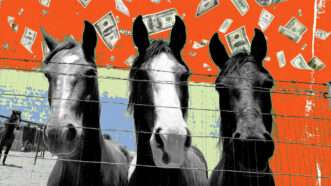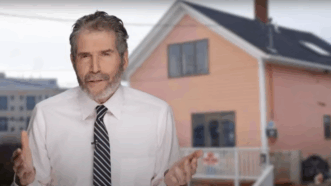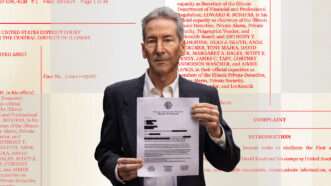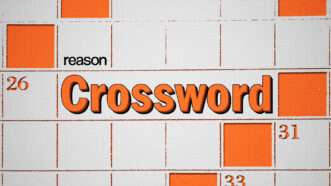Property
COVID Closure of Private Beach Access Constitutes a Taking
The Eleventh Circuit concludes "there is no COVID exception to the Takings Clause."
91-Year-Old Pennsylvania Woman With Dementia Loses $247,000 Home Over a $14,000 Tax Debt
Gloria Gaynor had almost finished paying off her house in Upper Darby, Pennsylvania. But she will not see a dime in equity.
The Government Seized 7 Horses From a Georgia 'Urban Cowboy.' A Court Says He Can Sue.
In a rare and significant decision, a federal court ruled Brandon Fulton can sue directly under the Takings Clause—without Congress creating a specific remedy.
Conservatives Shouldn't Oppose California's Potential Zoning Reforms
You have rights to your property, not to control others.
Stealing the Farm
Plus: housing reform is killed in Connecticut, bonus ADUs are gutted in San Diego, and two decades of Supreme Court-enabled eminent domain abuse.
The Government Seized Her Home for a Project That Never Happened
Twenty years after Susette Kelo lost at the Supreme Court, the land where her house once stood is still an empty lot.
Why Donald Trump and Josh Hawley Are Wrong To Call for Jailing People Who Burn the American Flag
The Supreme Court ruled decades ago that burning the flag is protected by the First Amendment, no matter how offensive that act may be.
New Jersey Town Says Small Setbacks, Stray Cats Allow It To Seize Private Property
Two business owners say the city of Perth Amboy is using exceedingly flimsy blight allegations to take, and potentially demolish, their property.
Virginia Courts Won't Split Ownership of Divorced Couple's Embryos
"The unique nature of each human embryo means that an equal division cannot conveniently be made," writes a Virginia judge.
Trump Declares Tesla Vandals 'Domestic Terrorists'
It's far from the first case of terrorism inflation.
The Best of Reason: How the Fair Housing Act Gave Us Emotional Support Parrots
The right to a reasonable accommodation has produced some absurd results.
How the Fair Housing Act Gave Us Emotional Support Parrots
The right to a reasonable accommodation has produced some absurd results.
The Government Says Money Isn't Property—So It Can Take Yours
In a jaw-dropping argument, the Department of Justice claims seizing $50,000 from a small business doesn’t violate property rights because money isn’t property.
What Process Is Due Before Property Is Destroyed?
The Sixth Circuit finds a city failed to provide adequate process before demolishing a condemned mobile home.
Choice of Law in Takings Cases After Tyler v. Hennepin County (IV)
Two modest defenses of Tyler’s choice of law strategy.
Choice of Law in Takings Cases After Tyler v. Hennepin County (III)
The Court’s departures from standard choice of law principles (or, takings doctrine for federal courts gurus).
Choice of Law in Takings Cases After Tyler v. Hennepin County (II)
The Court's approach to the choice of law question (or, federal courts doctrine for property lawyers).
Choice of Law in Takings Cases After Tyler v. Hennepin County
The Tyler case and the choice of law questions it raises.
Gavin Newsom Prohibits Offering To Buy People's Property
The California governor is using state of emergency powers to make unsolicited offers to buy people's property in fire-affected areas "for an amount less than the fair market value."
Nevada Judge to Nevada Cops: You Can't Use This Loophole To Get Around Civil Asset Forfeiture Reform
The Nevada Highway Patrol exceeded its legal authority when it seized nearly $90,000 in cash from Stephen Lara in 2023 and then handed the case to the DEA.
2 Florida Men Who Thought They Were Freeing Illegally Caught Sharks Are Now Felons
Federal prosecutors argued that John Moore and Tanner Mansell stole property when they hauled in a fishing line they mistakenly believed had been set by poachers.
Learning the Wrong Lessons From the Eminent Domain Legacy at Chavez Ravine
Progressives are trying to fix the errors of the past, but they're ignoring the best solution: More robust property rights.
Will SCOTUS Take on New York's Latest Eminent Domain Scam?
Two brothers are asking the Supreme Court to stop their town from using eminent domain to steal their land for an empty field.
California County Fines Man $120,000 for Refusing to Evict a Family From His Property
Plus, a look at Rep. Alexandria Ocasio-Cortez and Sen. Tina Smith's plan to resurrect public housing in America.
Baltimore's Tax Sales Are Robbing People of Their Equity
The Edmondson Community Organization accrued a modest property tax debt. The group paid dearly for that.
Michigan Officials Tried To Stop a 'Green' Cemetery. They Just Lost in Court.
After a Michigan couple indicated their intent to open a green cemetery, their local township passed an ordinance to forbid it. A judge found the rule unconstitutional.
The DEA Claims To Be Able To Search Your Bag Without Your Consent. But Can They?
Recent footage shows a federal agent attempting to search a citizen’s bag without their consent, despite precedent saying that’s illegal.
This Colorado Church Wants To Shelter the Homeless. The Town Won't Let It.
The Church of the Rock is suing, arguing that the zoning crackdown in Castle Rock violates the First Amendment.
Zoning Regulations Empower Control Freaks—and Bigots
The Institute for Justice has launched a project to reform land use regulation.
Illinois Won't Let Him Do His Job Filing Paperwork—Unless He Gets a Private Detective License
David Knott helps clients retrieve unclaimed property from the government. The state has made it considerably harder for him to do that.
California Won't Let Homeowners Insurance Companies Raise Rates, so They're Leaving the State Instead
Giving the state control over insurance rates turned pricing into a Byzantine regulatory process.
Study Estimates Nearly 96% of Private Property Is Open to Warrantless Searches
The Institute for Justice says its data show that a century-old Supreme Court doctrine created a huge exception to the Fourth Amendment.
Is Florida Finally Fixing Its Broken Homeowners Insurance Market?
Floridians spend millions litigating insurance disputes after hurricanes. There's a better way.
Can an Unconstitutional Law Force You To Sell Your Home to a Private Investor?
A zombie law, thrown out in court, continues to wreak havoc because it’s referenced in a contract.
Map: In L.A., Local Control Is Local Confusion
The people who could benefit from new housing stock aren't on this map—they're exiled to unincorporated areas.
Kicking Out Paid Conference Attendee May Be Breach of Contract—but His Returning Is Still Criminal Trespass
A case stemming from a "Holocaust revisionist's" expulsion from a conference on "Mennonites and the Holocaust."
Texas Bill Would Legalize Townhouses
The Texas Senate has passed two bills legalizing building homes on smaller lots and accessory dwelling units across the state.
'It's Like Stockholm Syndrome': Gloria Álvarez Is Trying To Save Latin America From Socialism
"If there is freedom, private property, rule of law, then Latin Americans thrive," says the social media star.
Texas Considers Bill To Privatize the Business of Issuing Building Permits
If a municipality fails to approve or deny a permit by state-set deadlines, developers could hire private third parties to get the job done.
The COVID-19 Pandemic Permanently Damaged Property Rights
Officials used the crisis to impose policies they already supported but couldn't get through the normal legislative process, like bans on evictions.
China's Purchases of U.S. Land Stoke Bipartisan Panic, Just Like Japan's Did In the 1980s
People panicked in the 1980s that Japan's economic largesse posed a grave threat to American interests. Then the market reined it in.
The Place Where Property Law Happens in New York City
By an amazing coincidence, a current property dispute is occurring at the site of a storied property law case.








































